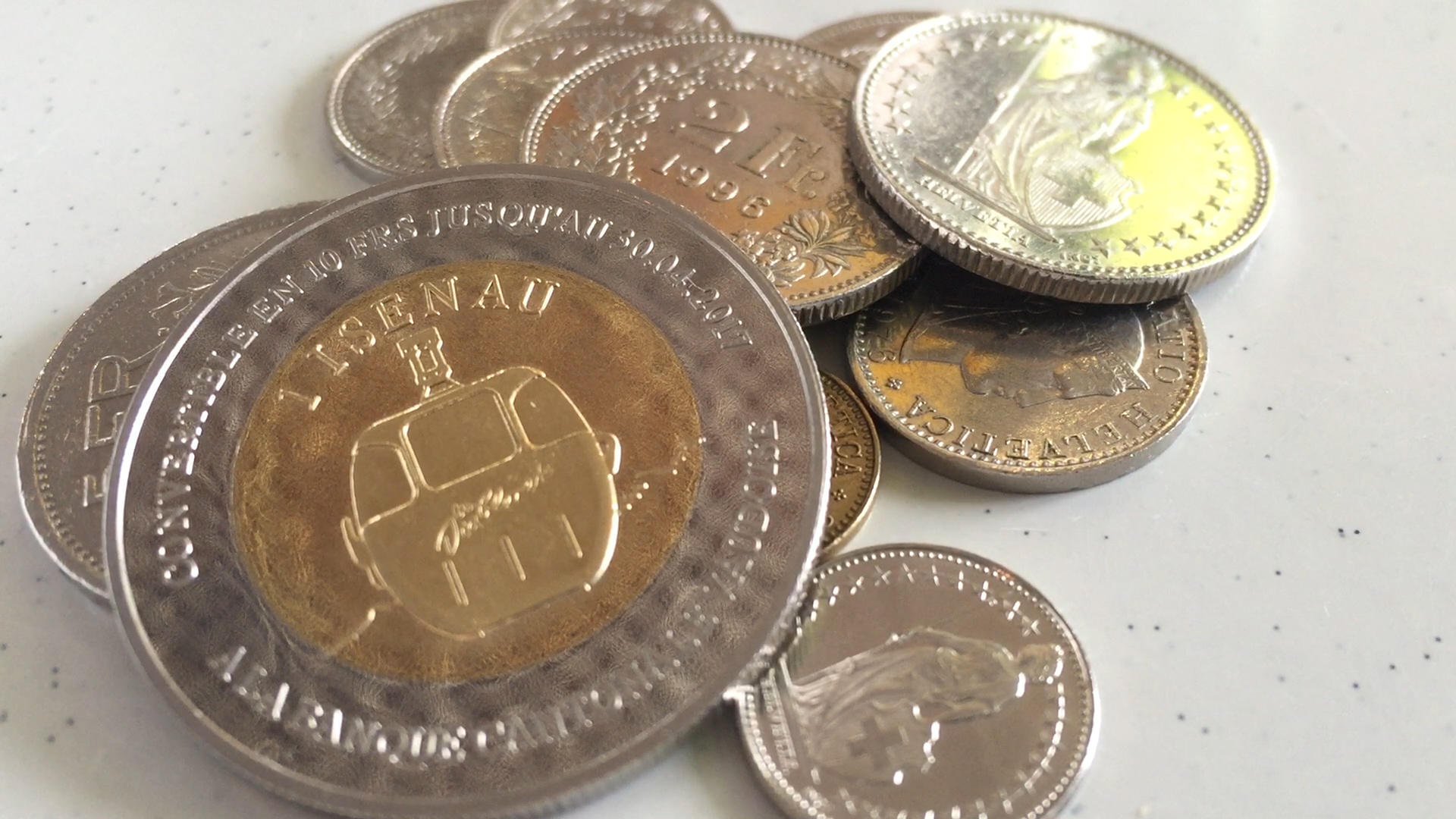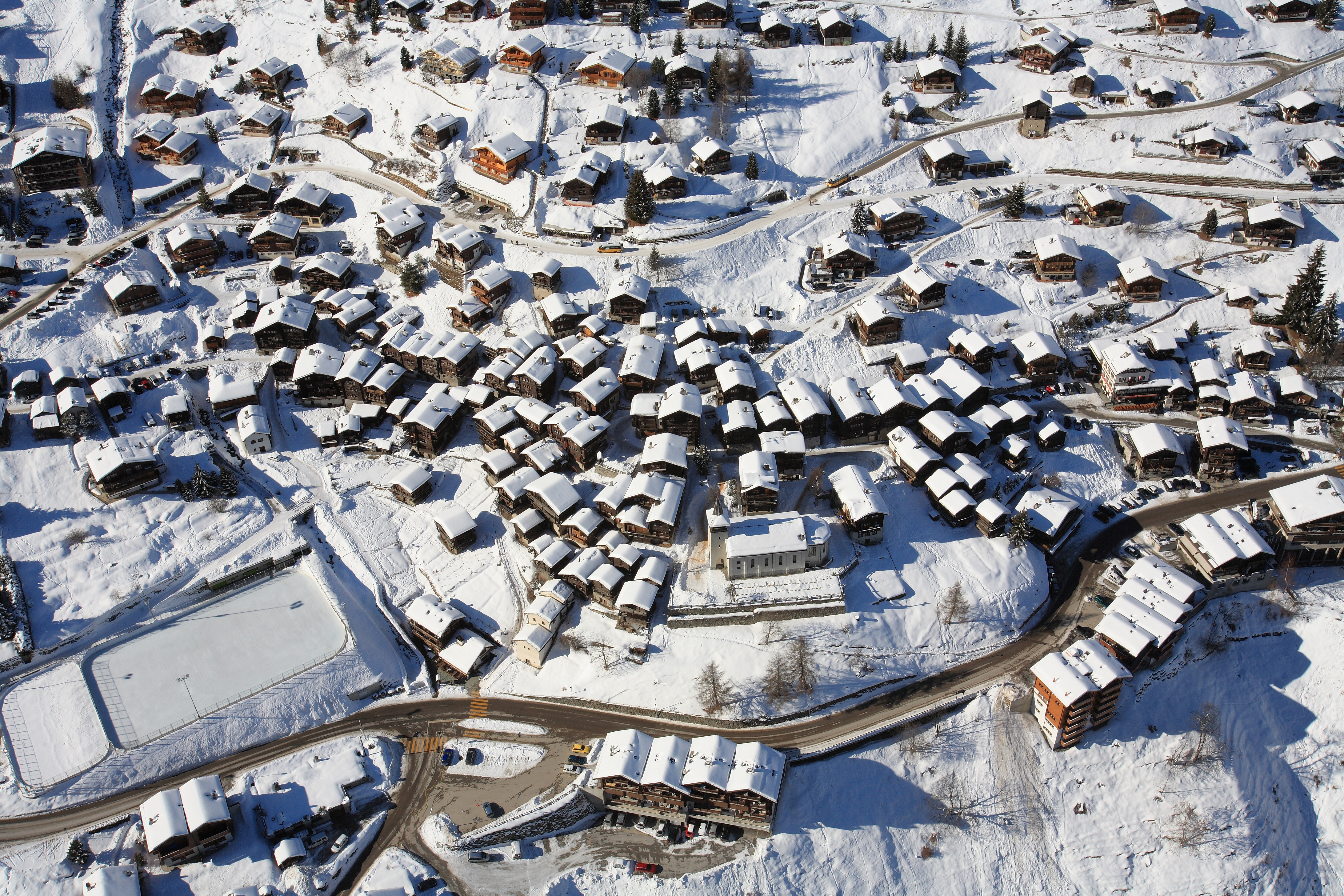Boosting the local economy

Complementary currencies are a growing phenomenon in Switzerland. This spring shoppers and businesses in canton Valais will start using Farinet banknotes. An association behind the Léman, a currency launched in Geneva in 2015 to stimulate local transactions, also recently celebrated its first birthday.
The Isenau coins, which circulate in the mountain village of Les Diablerets, was inspired by the ‘Sablier’, used to finance the 2000 Fêtes de Genève summer festival.
The ‘Farinet’ was a similar local money introduced in Sion in canton Valais to support the candidacy for the 2006 Winter Olympic Games.
There is a growing interest in complementary currencies in Switzerland. The Farinet is set to be reborn in Valais this AprilExternal link. An association recently announced that it had crowdfunded CHF25,600 to print Farinet banknotes which can be used in local Valais businesses.

More
Les Diablerets launches own currency for ski resort’s survival
Around 80,000 bills will be put in circulation to encourage the development of the local economy and around 100 businesses – from cafes and architects to taxi firms and grocers – have already agreed to accept the currency.
“The aim is not just to increase exchanges but to encourage a sense of belonging to a business network,” explained spokeswoman Cathy Berthouzoz.
It joins the LémanExternal link, a currency launched in Geneva in 2015 to stimulate local transactions. The Léman recently celebrated its first birthday. Some 80,000 notes are now in circulation and accepted by 350 businesses in the Lake Geneva and neighbouring French region. Around ten similar projects are reportedly in gestation.
“The growing interest in local currencies comes from a feeling that our current economic system remains fragile and that local economies are at risk of systemic crises. Local currencies offer better resilience to such crises and create a more sustainable environment and help build ties between economic partners,” declared Léman spokesman Jean Rossiaud.
But could local currencies be just a fad? Christian Arnsperger, professor of sustainability and economic anthropology at the University of LausanneExternal link, questions their economic impact.
He argues they have a weak short-term effect. But enthusiasm for such initiatives is proof that ‘currency is a political object and not just a neutral tool. People want to make choices about our lifestyles and choices in society. There is a real growing movement’, he told Swiss public radio, RTS.

In compliance with the JTI standards
More: SWI swissinfo.ch certified by the Journalism Trust Initiative











You can find an overview of ongoing debates with our journalists here . Please join us!
If you want to start a conversation about a topic raised in this article or want to report factual errors, email us at english@swissinfo.ch.